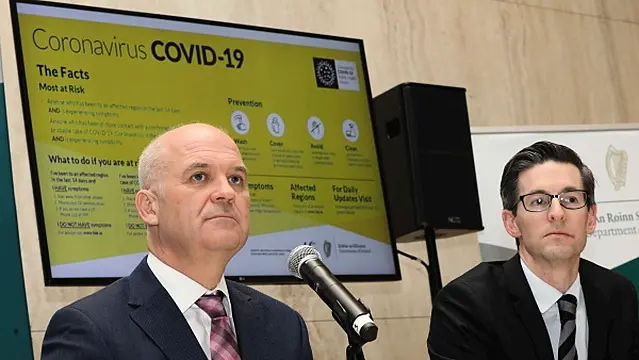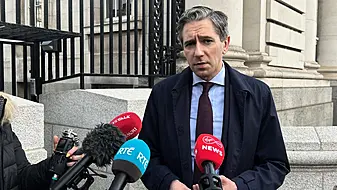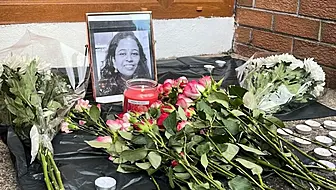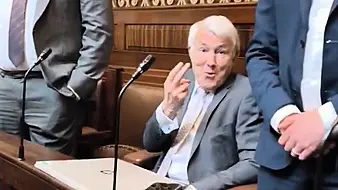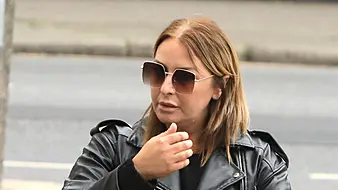“It was landed on us on a Sunday night as a surprise and without consultation," he said.
He also brought into question the composition of Nphet saying: "None of those people, for example, would have faced being on the Pandemic Unemployment Payment benefit, none of them would have to tell somebody that they are losing their job, and none of them would have to shutter a business for the last time."
What does Nphet do?
Nphet oversees and provides national direction, guidance, support and expert advice on the development and implementation of a strategy to contain Covid-19 in Ireland.
It advises Government on the public health aspects of what is a cross-Government response to Covid-19 as informed by Ireland's National Action Plan published on March 16th.
Recommendations and updates from National Public Health Emergency Teams are communicated to the relevant parties to inform policy and operational approaches, depending on the nature of the emergency.
Key to this is the role of the Minister for Health, who receives recommendations and updates for consideration in terms of health policy and further consideration, if needed, for a wider cross-Government approach.
Directly following each meeting, the recommendations of Nphet are communicated by letter to the Minister for Health for consideration, and these recommendations are used to assist Government in informing its decisions in responding to the public health emergency.
What is the criticism being levelled at the group at present?
Critics suggest it comprises medical and scientific experts but does not take account of the wider implications on society of its recommendations.
On the Claire Byrne Live show on RTÉ on Monday night, Tánaiste Leo Varadkar, said: “I have confidence in Nphet to dispense public health advice, but that is what they do. They don’t advise the public, they advise the Government and the Government decides. One thing that needs to be borne in mind is that these are very good people – 40 of them – but all coming from medical, scientific or civil service backgrounds.
"None of those people, for example, would have faced being on the Pandemic Unemployment Payment benefit, none of them would have to tell somebody that they are losing their job, and none of them would have to shutter a business for the last time. And I’m not talking about the economy, I’m talking about something that could have happened to half a million human beings from tomorrow.
"Sometimes the reason why politicians make these decisions is because we are the ones who can see the bigger picture. It’s not just about a virus and statistics around the virus, or death rates, it’s about real people and how it impacts on so many different people and so many different communities in so many different ways.”
Asked by Claire Byrne if people from a broader spectrum of society should be involved in forming the recommendations, Mr Varadkar suggested that this was something that may be considered.
Does Nphet only consider health risks?
There are numerous sub-groups within Nphet's operation, including one for behavioural change and another for communications. In these groups there are not only medical doctors involved.
What changes might be on the cards?
There was some indication of Fine Gael’s thinking on the matter last night, courtesy of a report from Jennifer Bray of The Irish Times.
She reports that at a parliamentary party meeting on Tuesday night, former minister for housing Eoghan Murphy suggested that the appropriate vehicle for future decision-making could be the National Emergency Co-ordination Group (NECG).
This group is normally associated with managing the challenges of severe weather events. However, his point was that the NECG was developed for any kind of emergency whether that be terrorism or a pandemic or some other major event.
“In this new scenario, the Minister from the lead department would chair the group and take input from the key adviser who in this case would be Nphet,” writes Bray.
“This structure would only be comprised of State actors. Each department would weigh in on what it means for the sectors that they represent and they would agree on the appropriate response and how it is to be delivered.”
The idea is that everything is then considered in the round, agreed and a single communications plan is co-ordinated and implemented. As Bray writes, the benefit of the plan, it was argued, is that everyone understands the risk, the potential impact and every department takes the decision together in a centralisation of the process.
Is this what the future holds?
It may be too early to tell, but the response from the Green Party and Wednesday night’s Fianna Fáil parliamentary party meeting will be interesting to gauge reaction to the suggestion of some reform of the advisors. And, of course, all eyes will be on the Covid-19 figures as well, which may prove the most influential factor in any decision on future levels of lockdown.
